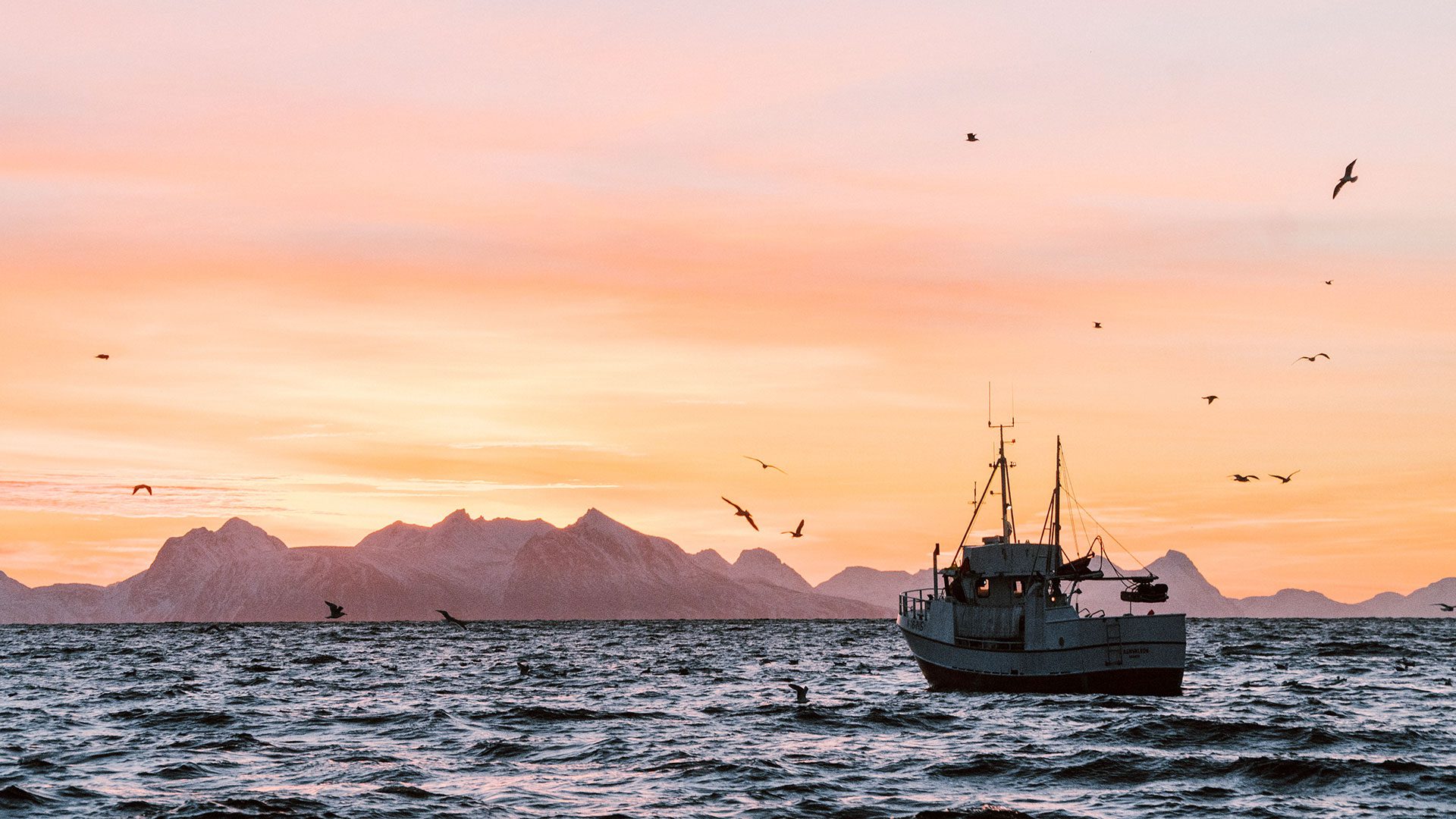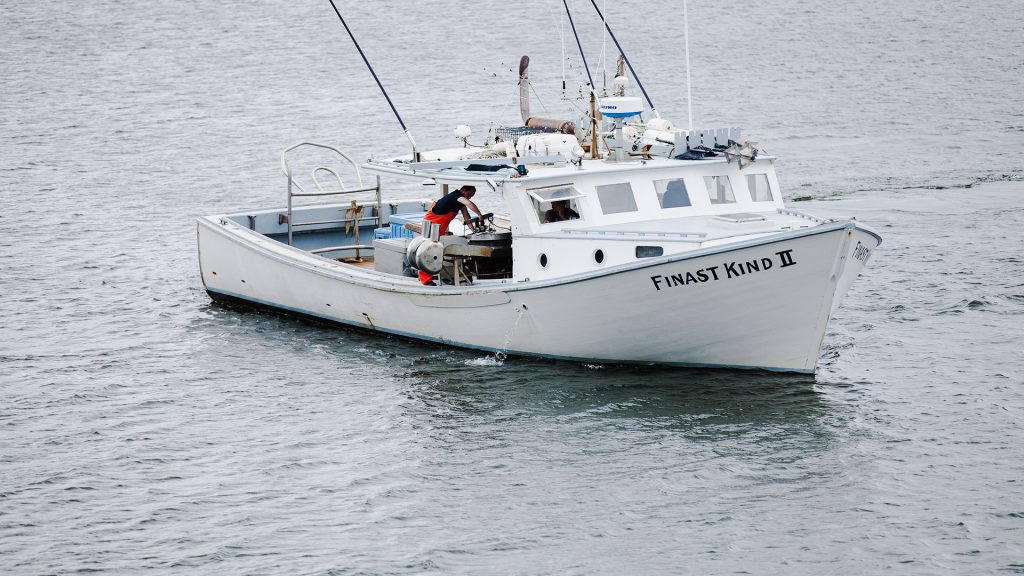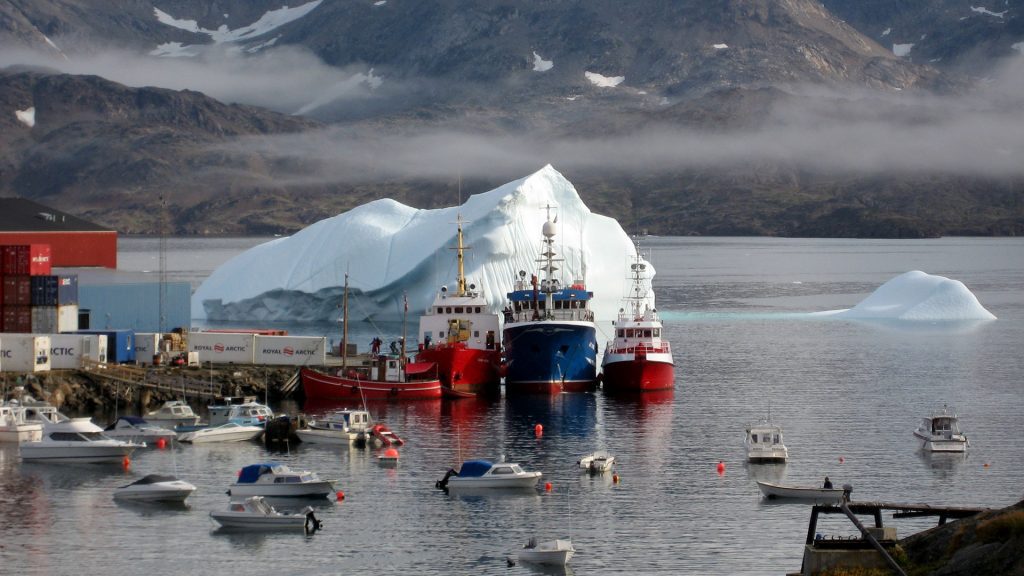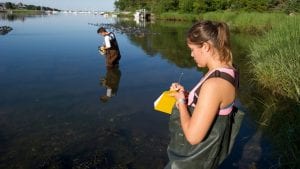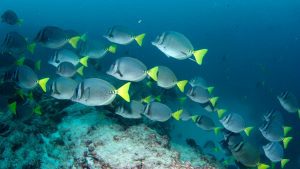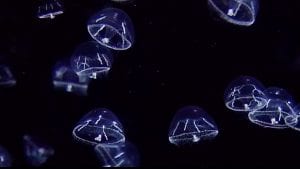The ocean has absorbed a lot of the planet's excess heat in the last century-roughly 93% of the warmth created by burning fossil fuels (among other human activities). All that energy has raised the average temperature of the ocean by 1.5°F since 1901, and is expected to continue warming the sea if carbon emissions aren't curbed. This has had profound consequences for many marine animals, but particularly for fish.
Fish are ectotherms, just like reptiles, amphibians, and invertebrates. Unlike mammals that regulate their body temperature internally, fish do so by inhabiting optimal temperature zones across various depths and latitudes in the sea. They also use seasonal shifts in temperature as a cue for important biological processes like developmental growth or reproduction. Because of this, fish are especially sensitive to changes in ocean temperature and may respond differently depending on the species and its geographic location. Many species like tuna, mackerel, and herring have been forced to migrate to cooler climes, putting strain on global fisheries and coastal communities that rely on them for food and income.
This problem is especially acute in warmer regions like the tropics, where dwindling fish stocks are projected to cause a 40% decline in the productivity of fisheries by 2050, according to the Marine Stewardship Council. The loss of tropical corals from ocean warming and acidification further exacerbates this issue by degrading coral reefs, causing other coastal fishes to look elsewhere for habitat.
By contrast, subpolar waters are becoming more suitable for some species that enter fishing territories (areas called Exclusive Economic Zones or EEZs) belonging to Russia, Norway, and some parts of the U.S. in the Alaskan Arctic. These areas are expected to see a 30%-70% increase in commercially valuable species in the next 30 years.
But while this productivity may seem like a silver lining, redistribution of fisheries has already begun to prime resource-driven conflicts and overfishing. Northeast Atlantic mackerel, for example, has mostly left Norway's historic fishing grounds in the last 20 years in favor of cooler waters near Iceland and the Faroe Islands. These nations have since taken advantage of the fishery boom by raising their fishing quotas by a whopping 6500% and 340%, respectively in 2009, sparking disputes with mackerel fishermen in Norway and Denmark, which have previously established agreements on catch limits. Other species are predicted to follow suit, including the Japanese anchovy, which models predict will migrate out of Japan's fishing grounds and into Chinese national waters in the coming decades.
But if history is any indication, profits from these newly available fisheries will be short-lived as warming continues and species march further toward the poles. American lobsters are one such cautionary tale. For nearly forty years, the Northwest Atlantic lobster fishery saw a fivefold increase in landings in the Gulf of Maine thanks to optimal temperatures caused by warming. However, since 2016 these landings have now begun to wane, as continued warming forces lobsters to migrate north or makes them vulnerable to shell-borne illness. Unabated, this trend could lead to a bust in lobster populations in the Gulf of Maine, threatening a multi-billion dollar industry.
LEARN MORE
Ocean Warming
Increasing ocean heat is closely linked to increases in atmospheric greenhouse gas concentrations, making the ocean an...
Braun, C. D., Lezama-Ochoa, N., Farchadi, N., Arostegui, M. C., Alexander, M., Allyn, A., Bograd, S. J., Brodie, S., Crear, D. P., Curtis, T. H., Hazen, E. L., Kerney, A., Mills, K. E., Pugh, D., Scott, J. D., Welch, H., Young-Morse, R., & Lewison, R. L. (2023). Widespread habitat loss and redistribution of marine top predators in a changing ocean. Science advances, 9(32), eadi2718. https://doi.org/10.1126/sciadv.adi2718
Marine Stewardship Council. (n.d.). Climate change and fishing. Retrieved September 12, 2023, from https://www.msc.org/what-we-are-doing/oceans-at-risk/climate-change-and-fishing
Greenan B.J.W, Shackell N.L., Ferguson K., Greyson P., Cogswell A., Brickman D., Wang Z., Cook A., Brennan C.E. and Saba V.S. (2019). Climate Change Vulnerability of American Lobster Fishing Communities in Atlantic Canada. Front. Mar. Sci., 6(579). https://doi: 10.3389/fmars.2019.00579
Liu, S., Liu, Y., Alabia, I. D., Tian, Y., Ye, Z., Yu, H., Li, J., & Jia-Hua, C. (2020). Impact of Climate Change on Wintering Ground of Japanese Anchovy (Engraulis japonicus) Using Marine Geospatial Statistics. Frontiers in Marine Science, 7. https://doi.org/10.3389/fmars.2020.00604
University of Wollongong Australia.(2021, August 2). Climate change is causing tuna to migrate. UOW. www.uow.edu.au/media/2021/climate-change-is-causing-tuna-to-migrate-.php.
Østhagen, A., Spijkers, J., & Totland, O. A. (2020). Collapse of cooperation? The North-Atlantic mackerel dispute and lessons for international cooperation on transboundary fish stocks. Maritime Studies, 19(2), 155-165. https://doi.org/10.1007/s40152-020-00172-4

